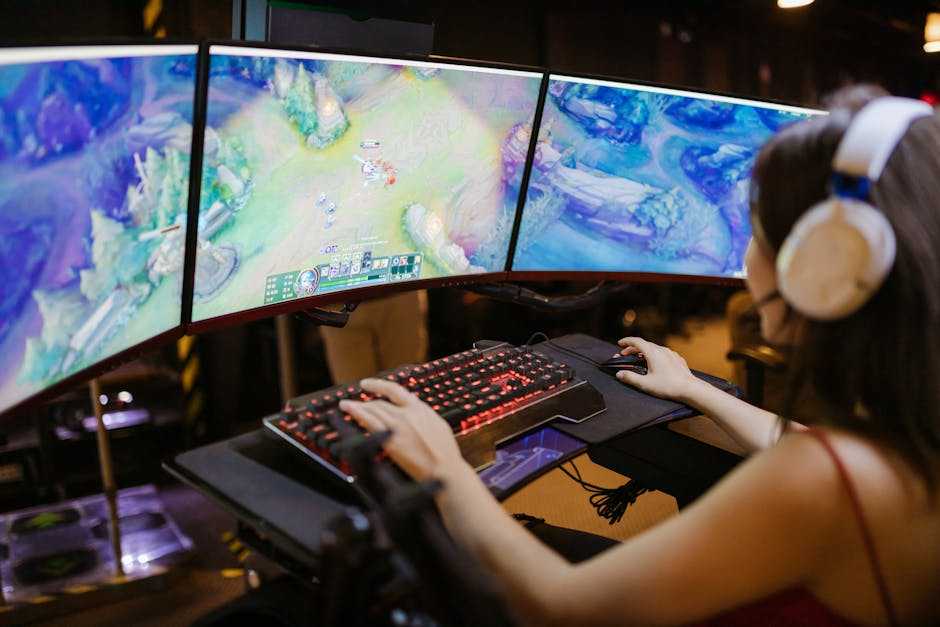The Emergence of Esports in Colleges
Growth of Esports Popularity
The popularity of esports has skyrocketed in recent years.
With platforms like Twitch and YouTube Gaming, millions of viewers tune in to watch their favorite games and players.
This surge is partly due to high-profile tournaments offering substantial prize money; the 2019 Fortnite World Cup, for instance, awarded $30 million across its events.
Major game titles like League of Legends, Dota 2, and CS:GO have built dedicated communities and professional leagues, further cementing esports’ global appeal.
Colleges and universities have noticed this trend, recognizing the potential for engaging students and building unique educational experiences.
Integration into Academic Institutions
Academic institutions are integrating esports into their programs by establishing dedicated esports degrees, building state-of-the-art arenas, and forming collegiate teams.
Over 200 U.S. colleges now offer esports scholarships, according to the National Association of Collegiate Esports (NACE). Institutions like the University of California, Irvine, boast comprehensive esports programs including specialized courses in game design and management.
These initiatives provide students with both competitive opportunities and career pathways within the rapidly growing gaming industry.
By merging academic rigor with the dynamic world of esports, colleges create an innovative learning environment that attracts top talent and prepares students for diverse roles in the tech-driven future.
Benefits of Collegiate Esports Programs
Skill Development and Educational Outcomes
- Collegiate esports programs foster a unique set of skills among students.
- Strategic thinking and analytical skills are honed as players must devise tactics and respond to dynamic in-game situations.
- Teamwork is essential, as success in games like League of Legends and Overwatch requires seamless coordination among team members.
- Educational outcomes also benefit significantly from esports participation.
- Students develop time management skills balancing practice sessions, competitions, and academics.
The integration of esports into academic programs, such as degrees in game design and computer science, allows students to apply theoretical knowledge in practical scenarios.
This application bridges the gap between academic learning and real-world problem-solving.
Career Opportunities in the Esports Industry
Collegiate esports programs open numerous career opportunities in the growing esports industry.
Graduates can pursue roles in game development such as:
- marketing
- event management
- capitalizing on their gaming experience.
Professional roles such as game designers, software developers, and digital marketers are in high demand within the industry.
Additionally, esports management positions include team managers, coaches, and analysts, providing strategic oversight to competitive teams.
Broadcast media roles, such as commentators and streamers, are viable for those skilled in communication and entertainment.
These opportunities reflect the diverse career pathways available to students involved in collegiate esports.
Overview of Scholarships for Esports Athletes
Colleges and universities are increasingly offering scholarships for esports athletes. These scholarships provide financial assistance and attract skilled gamers to the institution’s esports programs.
Criteria for Awarding Esports Scholarships
Colleges evaluate several factors when awarding esports scholarships. These factors include:
- Skill Level: Players must demonstrate proficiency in their chosen game through high rankings or tournament results. Exceptional performance in games like League of Legends, CS:GO, and Overwatch often garners attention.
- Academic Performance: Maintaining a solid GPA can be crucial. Institutions aim to balance academic and gaming excellence.
- Teamwork and Communication Skills: Coaches often assess candidates’ ability to work well within a team. Effective communication during gameplay and practices is highly valued.
- Dedication and Commitment: Students should show a commitment to both their education and esports. Consistent practice schedules and active participation in the gaming community can reflect this dedication.
Impact on Student Enrollment and Diversity
Esports scholarships positively impact student enrollment and diversity.
They attract students from various backgrounds who might not have otherwise considered higher education.
- Enhanced Enrollment: The introduction of esports scholarships often leads to a spike in applications. More students are drawn to institutions with reputable esports programs, further boosting enrollment numbers.
- Diverse Student Body: Esports is a global phenomenon, and players from different geographical, cultural, and socioeconomic backgrounds are interested in pursuing these scholarships. This diversity enriches the campus environment.
- Inclusive Opportunities: Scholarships provide opportunities for students who may excel in gaming rather than traditional sports. This inclusion broadens the types of talents and perspectives represented on campus.
These elements make esports scholarships a strategic asset for colleges, fostering growth and diversity in their student populations.
Challenges Facing Collegiate Esports
Balancing Academics and Competitive Play
Students involved in collegiate esports face the challenge of balancing their academic responsibilities with their competitive gaming commitments.
Academic performance mustn’t suffer as they dedicate extensive hours to practice, tournaments, and team meetings.
The need for time management skills is crucial, as students juggle studying, classes, and game schedules.
Institutions with robust esports programs often implement academic support systems to help student-athletes maintain their grades.
These support systems include tutoring, academic advising, and scheduling flexibility for team events.
Without this balance, students risk academic probation and losing their scholarships.
Addressing Equity and Inclusion
Collegiate esports programs face challenges related to equity and inclusion.
The gaming community has historically been male-dominated, and efforts to create a more inclusive environment are necessary.
Initiatives promoting diversity and respect are essential to providing equal opportunities to all students, regardless of gender, race, or socioeconomic background.
Programs are incorporating workshops and training on diversity and anti-harassment to foster a welcoming atmosphere.
Scholarships aimed at underrepresented groups are also being introduced to encourage wider participation.
Data from the Higher Education Esports Organization (HEEO) indicate that inclusive practices contribute to a more diverse and vibrant gaming community.



 Rosendor Smithiery, the founder of Infinity Game Saga, plays a pivotal role in shaping the direction and content of the platform. As the visionary behind the site, Rosendor’s leadership and passion for gaming drive the company’s mission to deliver top-notch gaming coverage. In addition to his executive role, he actively contributes to writing articles, offering his deep insights and expert perspectives on various gaming topics.
Rosendor’s hands-on approach ensures that Infinity Game Saga maintains a high standard of quality and relevance. His articles often explore emerging trends, provide detailed analyses, and offer unique viewpoints on the gaming industry. By blending his leadership with his writing, Rosendor enriches the content and connects with readers, solidifying Infinity Game Saga’s reputation as a leading voice in gaming media.
Rosendor Smithiery, the founder of Infinity Game Saga, plays a pivotal role in shaping the direction and content of the platform. As the visionary behind the site, Rosendor’s leadership and passion for gaming drive the company’s mission to deliver top-notch gaming coverage. In addition to his executive role, he actively contributes to writing articles, offering his deep insights and expert perspectives on various gaming topics.
Rosendor’s hands-on approach ensures that Infinity Game Saga maintains a high standard of quality and relevance. His articles often explore emerging trends, provide detailed analyses, and offer unique viewpoints on the gaming industry. By blending his leadership with his writing, Rosendor enriches the content and connects with readers, solidifying Infinity Game Saga’s reputation as a leading voice in gaming media.
